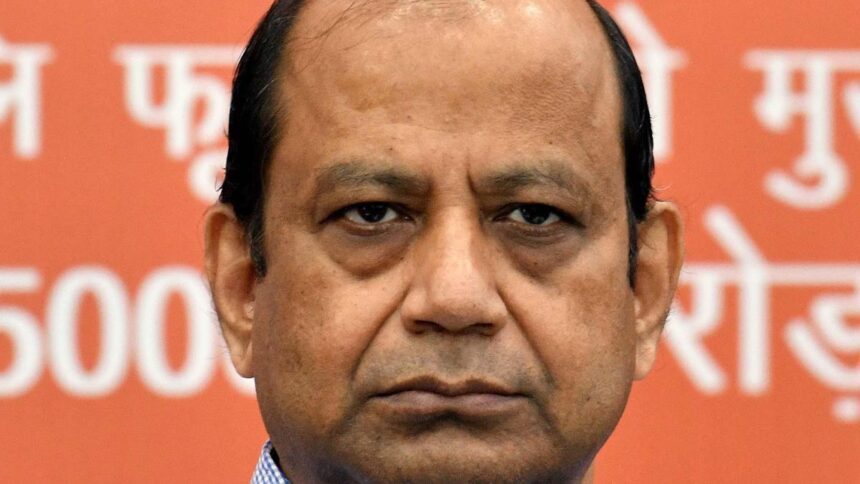The Solvent Extractors’ Association of India (SEA) has praised the government’s ₹1-lakh-crore Research, Development, and Innovation (RDI) scheme, asserting that it will generate new opportunities for the Indian edible oil sector. In a monthly letter to SEA members, President Sanjeev Asthana commended the initiative as a visionary move to foster technology-driven growth.
“The scheme offers long-term, low-cost financing for high-risk, high-impact research in areas such as deep-tech, agri-tech, biotechnology, and clean energy, leading to new opportunities for our edible oil industry,” Asthana stated. He highlighted that it could stimulate innovation in areas like improved oilseed varieties, climate-resilient farming, precision agriculture, processing optimization, and digital traceability, thereby helping reduce import reliance and bolstering domestic capacity.
Asthana also welcomed the government’s approval of the ₹25,060-crore Export Promotion Mission (EPM), noting that it consolidates various export schemes into a single, digital, outcome-oriented platform. The mission’s components, ‘Niryat Protsahan’ and ‘Niryat Disha,’ aim to enhance access to trade finance, lessen compliance burdens, and improve market readiness for micro, small, and medium enterprises (MSMEs) and labor-intensive sectors. He expressed confidence in leveraging these schemes to broaden opportunities for India’s agriculture and associated commodities, both domestically and internationally.
Asthana urged the Department of Agriculture to reinstate the hosting of weekly sowing update data for various crops, including oilseeds, under the ‘All India Crop Situation’ section of its website, which had been discontinued last year. This data was instrumental for manufacturers and exporters of oilmeals and importers of vegetable oils in strategizing their decisions related to imports and exports.
Regarding the government’s final crop production estimates for 2024-2025, Asthana noted a projected increase in oilseed output to a record 429.89 lakh tonnes (lt), up by 32.20 lt, with soybean and groundnut seeing double-digit growth rates compared to the previous year. He remarked that while these projections are encouraging, overall import levels for edible oils have not displayed a corresponding decline, highlighting the necessity for ongoing cooperation between the government and the industry to align crop estimates with market demands.
Turning to rabi crops, the Union Ministry of Agriculture reported a rise in oilseed acreage by over 3 lakh hectares as of November 14, now totaling 66.2 lakh hectares, driven by favorable prices for mustard farmers. Rajasthan leads in rapeseed-mustard cultivation, with nearly 30.5 lakh hectares sown, covering 85 percent of the normal sown area. The prevailing price of mustard seed above the minimum support price (MSP) of ₹6,200 per quintal has motivated farmers to increase their plantings.
To enhance oilseed production and reduce dependence on imports, which currently meet nearly 60 percent of domestic demand, the government has initiated the Technology Mission on Oilseeds. Asthana mentioned that while the volume of edible oil imports remains constant at around 160 lt, the import bill has surged from ₹1.31 lakh crore to ₹1.61 lakh crore, approximately $18.3 billion. He underscored the urgency for a better calibration of MSPs, as the existing structure for rice and wheat diverts farmers away from oilseed cultivation.
He acknowledged the government’s move to increase the duty differential between crude and refined oils from 8.25 percent to 19.25 percent in July, an effort aimed at curtailing excessive refined oil imports, which has been effective in significantly reducing the import of RBD palm oil. However, he raised concerns about a new issue under the South Asia Free Trade Agreement (SAFTA), where refiners from Nepal have been exporting considerable quantities of refined soybean and sunflower oils to India at zero duty. The association has urged Union Commerce Minister Piyush Goyal to regulate such imports through NAFED or other government agencies for oils originating from neighboring countries.
In a recent development, the Union Finance Ministry, through a Customs Notification dated November 14, reduced the customs duty on crude pomace olive oil from 38.5 percent to 16.5 percent. This decision follows SEA’s persistent advocacy for duty rationalization to ensure a level playing field for crude edible oils. Asthana noted that crude pomace olive oil is the most common and versatile variety in India, providing various health benefits. The reduction in import duty will make this oil more accessible to a broader segment of the Indian population.
Published on November 24, 2025.










